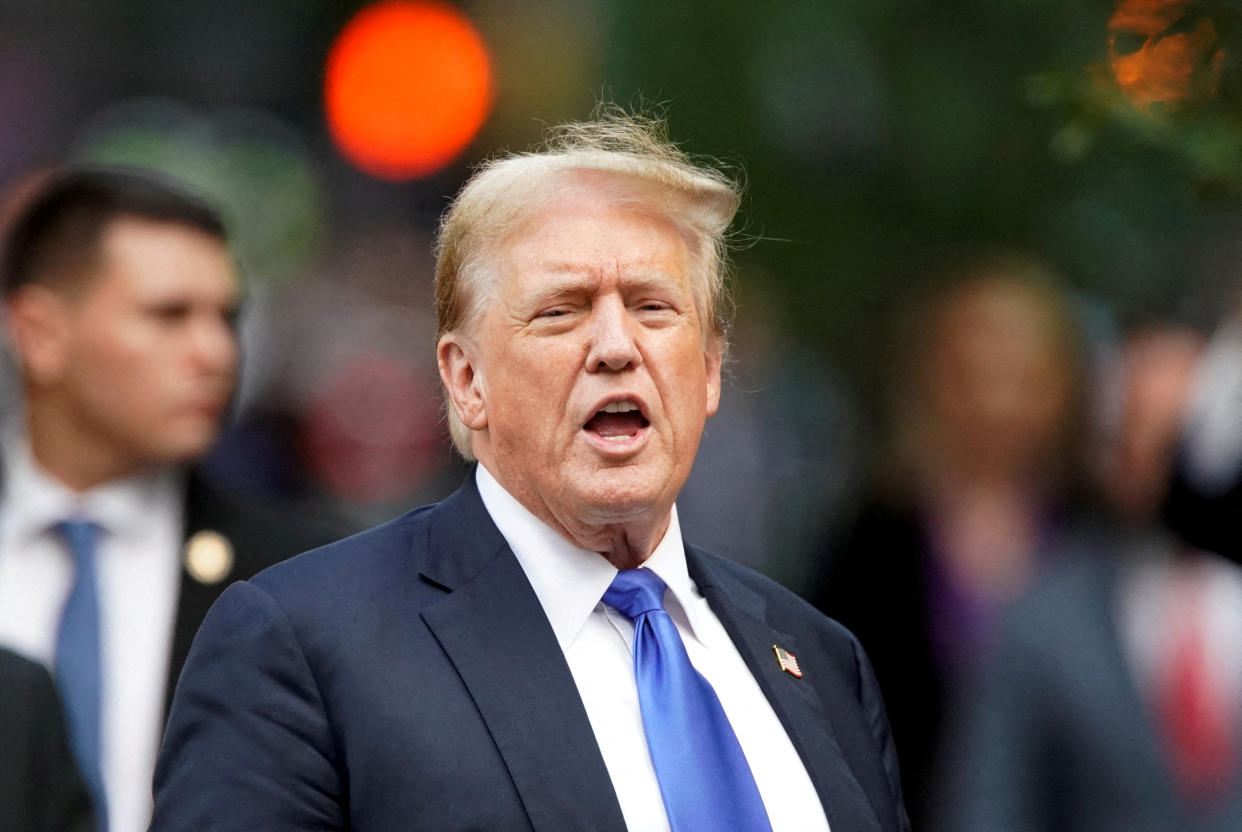Trump's sentencing delayed until September. Here's how the court immunity ruling affects his hush money conviction.

The judge overseeing Donald Trump's trial for 34 felony counts of falsifying business records announced on Tuesday that he would delay sentencing the former president until September so he could hear arguments pertaining to the Supreme Court's latest ruling on presidential immunity.
"The July 11, 2024, sentencing date is therefore vacated," Judge Juan Merchan wrote. "The Court's decision will be rendered off-calendar on September 6, 2024, and the matter is adjourned to September 18, 2024, at 10:00 a.m. for the imposition of sentence, if such is still necessary, or other proceedings."
Lawyers for former President Donald Trump had sent a letter Monday to Merchan asking him to toss a jury’s guilty verdict on 34 felony counts of falsifying business records.
Their argument is that the Supreme Court decision on presidential immunity invalidates the verdict that found Trump had falsified business records to hide a $130,000 payment to adult film actress Stormy Daniels, because prosecutors partly built their case on evidence that dated to the months after Trump had become president.
Prosecutors with Manhattan District Attorney Alvin Bragg’s office said they would agree to delay Trump’s July 11 sentencing date, but would lay out their case to Merchan as to why the jury’s verdict should stand.
“Although we believe defendant’s arguments to be without merit, we do not oppose his request for leave to file and his putative request to adjourn sentencing pending determination of his motion,” Joshua Steinglass, one of the prosecutors on the case, wrote.
‘Official acts’?
In just more than a week, Merchan was set to announce his sentence following the jury’s historic guilty verdicts of a former president. While most analysts believed that Trump would avoid jail time since this was his first criminal conviction, other factors, such as his repeated violation of Merchan’s gag orders put in place during the trial, made that uncertain.
But the Supreme Court decision on Monday on the question of whether presidents are protected from prosecution will delay Trump’s sentencing until at least September 18.
The decision, and Merchan's statement, also leaves open the possibility that Trump could face no repercussions, despite the New York jury’s guilty verdicts. That’s because the Supreme Court ruled that presidents cannot be tried for alleged crimes related to their official duties.
“The President is not above the law. But under our system of separated powers, the President may not be prosecuted for exercising his core constitutional powers, and he is entitled to at least presumptive immunity from prosecution for his official acts,” Chief Justice John Roberts wrote in the landmark ruling.
Merchan will have to decide whether the fact that Trump sent reimbursement checks to his former lawyer Michael Cohen from the White House, after he had been inaugurated, makes it rise to the level of an official act. He’ll also hear arguments from Trump’s lawyers that much of the testimony in the case came from presidential aides, making it inadmissible.
Last year, however, a federal judge rejected Trump’s argument that presidential immunity protected him from being prosecuted in the hush money case because the payment to Daniels was personal, not an official act.
“The evidence overwhelmingly suggests that the matter was purely a personal item of the President — a cover-up of an embarrassing event,” United States District Judge Alvin Hellerstein wrote. “Hush money paid to an adult film star is not related to a President’s official acts. It does not reflect in any way the color of the President’s official duties.”
Why the timeline matters
While much of the evidence surrounding Trump’s alleged deal with National Enquirer publisher David Pecker and Cohen to kill damaging stories about the 2016 presidential candidate took place prior to Trump being elected, a fair bit of it came after, as a timeline of the key events of the case shows.
With its ruling on Monday, the Supreme Court gave presidents extraordinary latitude to claim that actions undertaken while in office are protected from prosecution. At the very least, the court gave Trump’s lawyers another line of appeal should Merchan move forward and sentence Trump after hearing the arguments from his lawyers.
Correction: This story initially said Merchan's memo was sent Monday; it was sent Tuesday.


